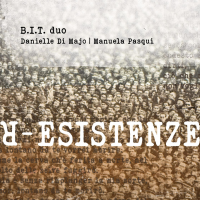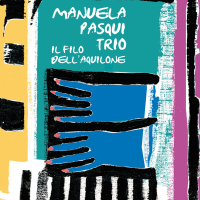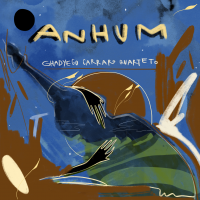Home » Jazz Musicians » Manuela Pasqui Discography
R-esistenze
Manuela Pasqui
Label: Filibusta Records
Released: 2025
Views: 107
Tracks
L'identità perduta; Brigata Menotti; Miriam; Meriggiare; Sul fil di lama; Cinque pezzi di luna; Bagheria; Lipari; Poisson d'or; Luce di mezzanotte.
Personnel
Manuela Pasqui
pianoDanielle Di Majo
saxophone, altoB.I.T. DUO with Danielle Di Majo and Manuela Pasqui
band / ensemble / orchestraAdditional Personnel / Information
Manuela Pasqui: piano, arrangements, compositions; Danielle Di Majo: alto and soprano sax, arrangements, compositions.
Album Description
About the tracks
L’identità perduta (M. Pasqui)Includes original wartime audio from the Historical Archive of Florence, the first live sound recordings from August 1944. The piece reflects on how easily Italy’s historical identity and the hard-won freedom of its people can be forgotten.
Brigata Menotti (M. Pasqui)
A tribute to the women who, during the Fascist era and after, fought against oppression, including patriarchal prejudice, showing extraordinary courage and determination. To them, we dedicate our deepest gratitude.
Miriam (M. Pasqui)
Dedicated to journalist and activist Miriam Mafai, promoter of the “Trains of Happiness” initiative. The composition celebrates her integrity, moral strength, and legacy in the Italian women’s emancipation movement.
Meriggiare (M. Pasqui)
Inspired by the visionary poem by Eugenio Montale, this piece evokes the quiet tension and reflective beauty of his verses.
Sul fil di lama (D. Di Majo)
Inspired by Montale’s Felicità Raggiunta, the piece transforms the poem’s meter into harmonic structures, a meditation on the fragile balance of joy and human emotion.
Cinque pezzi di luna (M. Pasqui)
Based on Joyce Lussu’s poem, the work explores the inner world of liberated women and their complex relationship with tradition, symbolized by a “broken moon.
Bagheria (D. Di Majo)
Inspired by Dacia Maraini’s autobiographical novel Bagheria, this piece evokes the landscapes and layered memories of Sicily, intertwining identity, struggle, and nostalgia.
Lipari (D. Di Majo, M. Pasqui)
A tribute to the exiled heroes Rosselli, Lussu, and Nitti, recalling their escape from Lipari, a vision of freedom, resistance, and hope.
Poisson d’Or (M. Pasqui)
Using the symbolism of the “Golden Fish,” this composition reflects on the courage, resilience, and transformative spirit of the Italian people during WWII.
Luce di mezzanotte (M. Pasqui)
A nocturnal vision of rebirth, after the darkness of war, a peaceful and luminous awakening under the aurora of freedom.
















